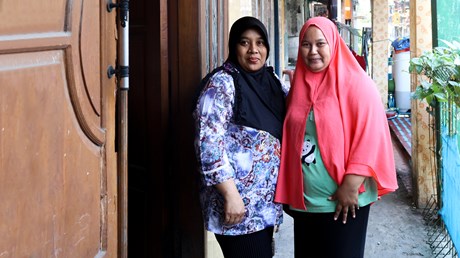Indonesia’s Compassion First isn’t knocking down doors, but caring for victims and tutoring at-risk youth living in cemeteries.

Inside a cemetery in West Java, large trees cast shade over a jumble of low tombstones as a woman rests on a mattress laid on top of a gravestone. The graveyard is home not only to the dead but to the living poor, who have nowhere else to go. In the northern section of the cemetery, about 200 families live in brick and tin buildings lining a ditch filled with trash and milky sewage water. (For security reasons, the names of the cemeteries have been changed, only the first names of its residents are used, and cities have not been identified.)
Residents of the Rose cemetery community eke out a living collecting garbage, driving pedicabs, or cleaning graves by day. At night, many women resort to prostitution to provide for their families, and their daughters are often sold—or kidnapped—into the sex trade.
On the first floor of one building in the cemetery complex is the blue covered porch where Compassion First (CF) held activities, including tutoring, parenting classes, and cooking classes, for the community. (Recently, CF moved its programs to a new community center near the cemetery.) CF focuses on fighting sex trafficking in Indonesia, and here at the cemetery, that looks like prevention work through community development.
Susi and Mala, two mothers who have lived in the community their whole lives, noted that in the past, neighbors rarely knew one another. Yet since CF arrived during the COVID-19 pandemic—initially to provide food for the community and scholarships to the children—the neighborhood has become much more close-knit and better resourced. For young girls, this could make the difference between whether they are trafficked and not.
Susi learned from the cooking class how to make seblak (a …

